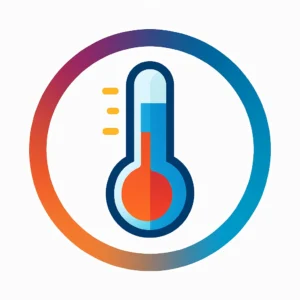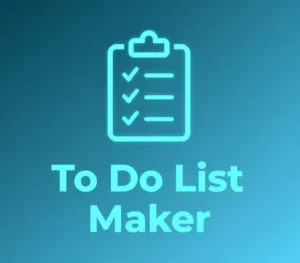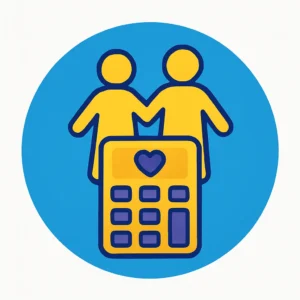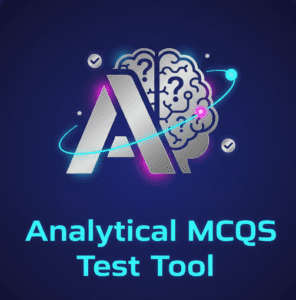Social Anxiety Test Tool
Social Anxiety Test Tool
Answer 5 random questions to evaluate your social anxiety. Each test provides unique questions for accurate assessment.
Your Social Anxiety Assessment
Social Anxiety Test Tool: Assess Your Mental Health with Confidence
Mental health awareness has grown significantly in recent years, and understanding social anxiety is crucial for personal well-being. The Social Anxiety Test Tool provides a simple yet effective way to evaluate your comfort levels in social situations. Whether you experience mild discomfort or severe distress in social settings, this tool helps you gauge your anxiety levels accurately.
What Is a Social Anxiety Test Tool?
A Social Anxiety Test Tool is a self-assessment questionnaire designed to measure the intensity of anxiety experienced in social interactions. It consists of carefully selected questions that evaluate emotional responses, avoidance behaviors, and physical symptoms related to social situations. By analyzing your answers, the tool provides insights into whether your anxiety levels are mild, moderate, or severe.
Why Should You Use a Social Anxiety Test Tool?
Many people underestimate the impact of social anxiety on their daily lives. Persistent nervousness, fear of judgment, and avoidance of social gatherings can hinder personal and professional growth. Using a Social Anxiety Test Tool helps you:
- Identify patterns in your anxiety triggers
- Understand the severity of your social anxiety
- Take proactive steps toward managing symptoms
- Seek professional help if necessary
Early detection through self-assessment can lead to better coping strategies and improved mental health.
How Does the Social Anxiety Test Tool Work?
The Social Anxiety Test Tool presents a series of randomized questions, ensuring each assessment is unique. Users rate their responses on a scale from “Never” to “Always,” reflecting how often they experience anxiety in different scenarios. Based on the answers, the tool calculates a score and provides a detailed analysis of anxiety levels.
Key features include:
- Personalized questions tailored to different social situations
- Instant results with clear interpretations
- Actionable recommendations based on severity
Who Should Take This Test?
The Social Anxiety Test Tool is beneficial for anyone who:
- Feels uneasy in social gatherings
- Avoids public speaking or group interactions
- Experiences physical symptoms like sweating or rapid heartbeat in social settings
- Wants to track anxiety levels over time
Whether you suspect you have social anxiety or simply want to assess your comfort levels, this tool offers valuable insights.
Benefits of Regular Self-Assessment
Regularly using the Social Anxiety Test Tool helps monitor changes in anxiety levels. Unlike a one-time evaluation, repeated assessments can reveal:
- Improvements from therapy or self-help techniques
- Triggers that worsen anxiety
- Effectiveness of coping mechanisms
Tracking progress ensures you stay informed about your mental health journey.

How Accurate Is the Social Anxiety Test Tool?
While the Social Anxiety Test Tool is not a diagnostic tool, it provides a reliable indication of anxiety levels. The questions are based on common psychological assessments used in mental health screenings. For a clinical diagnosis, consulting a mental health professional is recommended.
Comparing Social Anxiety Test Tools
Several online tools assess social anxiety, but the Social Anxiety Test Tool stands out due to its:
- Randomized question bank (100+ questions)
- User-friendly interface
- Detailed feedback system
Other tools, such as the Mental Health America Anxiety Screening, also offer valuable insights but may not provide the same level of personalization.
Tips for Managing Social Anxiety
If your test results indicate moderate to high anxiety, consider these strategies:
- Practice Deep Breathing – Calms the nervous system before social interactions.
- Gradual Exposure – Slowly increase social engagement to build confidence.
- Cognitive Behavioral Techniques – Challenge negative thought patterns.
- Seek Support – Join groups or therapy sessions focused on anxiety management.
For additional self-help tools, explore Ahmad Free Tools, which offers resources like the Friendship Calculator Tool to strengthen social connections.
When to Seek Professional Help
If your Social Anxiety Test Tool results show severe anxiety, consider consulting a therapist. Signs that professional help may be needed include:
- Avoiding all social interactions
- Physical symptoms (panic attacks, nausea)
- Impact on work or relationships
Therapists can provide personalized treatment plans, including therapy or medication if necessary.
Common Misconceptions About Social Anxiety
Many believe social anxiety is just shyness, but it’s much more intense. Key myths include:
- “It’s just a phase” – Social anxiety can persist without intervention.
- “Only introverts experience it” – Extroverts can also struggle with social anxiety.
- “Avoiding situations helps” – Avoidance often worsens anxiety over time.
Understanding these misconceptions helps in addressing anxiety more effectively.
How the Social Anxiety Test Tool Complements Therapy
For those already in therapy, the Social Anxiety Test Tool serves as a supplementary resource. It helps:
- Track progress between sessions
- Identify new triggers to discuss with a therapist
- Measure the effectiveness of treatment strategies
Combining self-assessment with professional guidance enhances recovery.
The Role of Technology in Mental Health Assessment
Digital tools like the Social Anxiety Test Tool make mental health screening accessible. Benefits include:
- Convenience – Take the test anytime, anywhere.
- Privacy – No need to share personal details initially.
- Immediate feedback – No waiting for results.
As mental health awareness grows, such tools play a crucial role in early detection.
Conclusion
The Social Anxiety Test Tool is a valuable resource for anyone looking to understand their anxiety levels. By providing instant feedback and actionable insights, it empowers users to take proactive steps toward better mental health.
If your results indicate high anxiety, don’t hesitate to seek professional support. Mental well-being is just as important as physical health, and early intervention can make a significant difference. For more self-assessment tools, visit Ahmad Free Tools and explore resources designed to enhance your emotional and social well-being.






